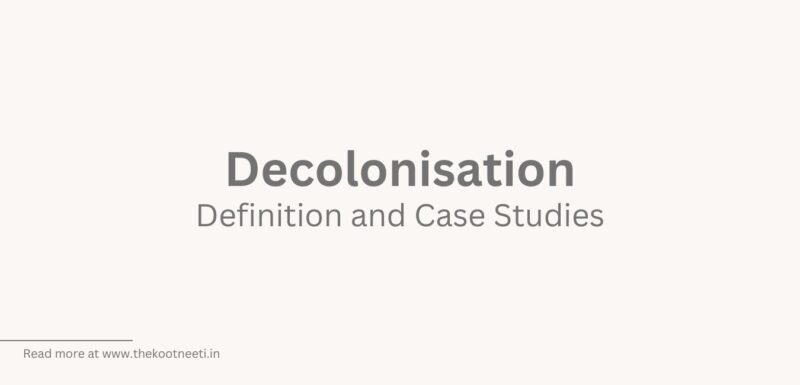Decolonisation: Definition and Case Studies

Decolonization refers to the process of dismantling and ending the political, economic, and cultural control that a country or territory has over another. It often involves the withdrawal of colonial power from the colonized territory, as well as the transfer of power to the indigenous population or to a newly independent government.
Decolonization can take many forms, including independence movements, wars of liberation, and negotiated settlements. It often involves complex and often contentious processes, as the colonial power may resist giving up control and the indigenous population may face challenges in establishing a new government and building a sovereign state.
Decolonization has had a significant impact on the global political landscape, as it has led to the creation of many new independent countries and has reshaped the balance of power between different nations. It has also had a significant cultural and social impact, as it has led to the reassertion of indigenous identities and the recognition of the rights of colonized peoples.
Here are a few examples of case studies that could be conducted on decolonization:
- The decolonization of India: India’s struggle for independence from British rule was a significant and long-running process, with significant contributions from figures such as Mahatma Gandhi and Subhash Chandra Bose. A case study of the decolonization of India might examine the strategies and tactics employed by Indian independence movements, the role of domestic and international factors in shaping the decolonization process, and the impact of decolonization on India’s political and economic development.
- The decolonization of Africa: The decolonization of Africa was a complex and often violent process, with many African countries gaining independence in the 1950s and 1960s. A case study of the decolonization of Africa might examine the strategies and tactics employed by independence movements, the role of domestic and international factors in shaping the decolonization process, and the impact of decolonization on African political and economic development.
- The decolonization of the Middle East: The decolonization of the Middle East was shaped by a range of factors, including the collapse of the Ottoman Empire, the emergence of nationalism, and the impact of oil resources. A case study of the decolonization of the Middle East might examine the strategies and tactics employed by independence movements, the role of domestic and international factors in shaping the decolonization process, and the impact of decolonization on the political and economic development of Middle Eastern countries.


















